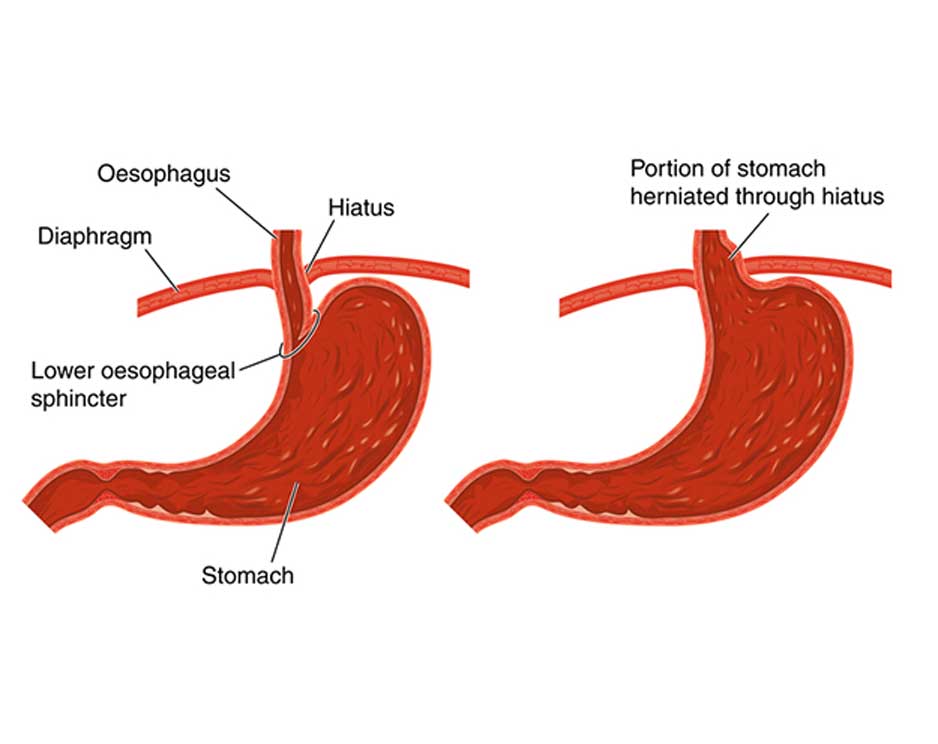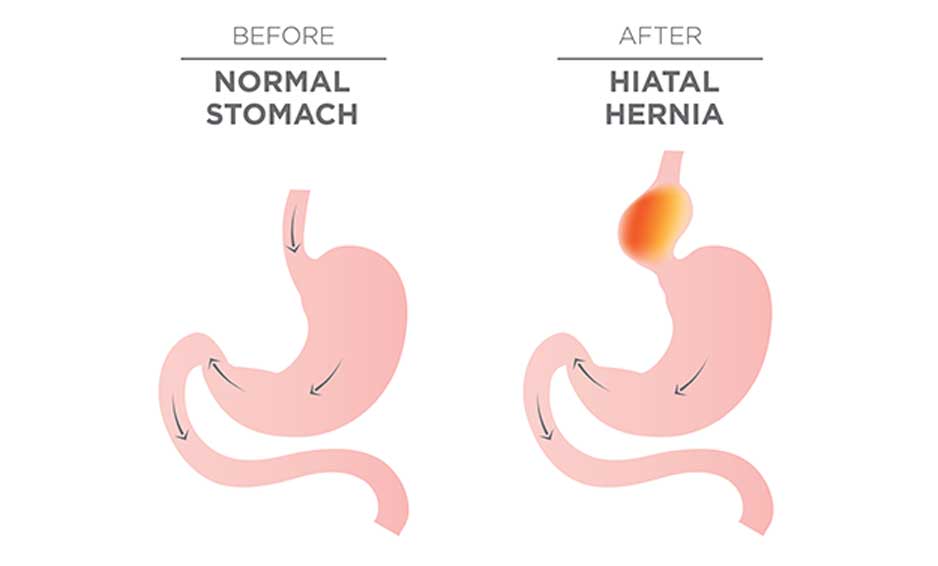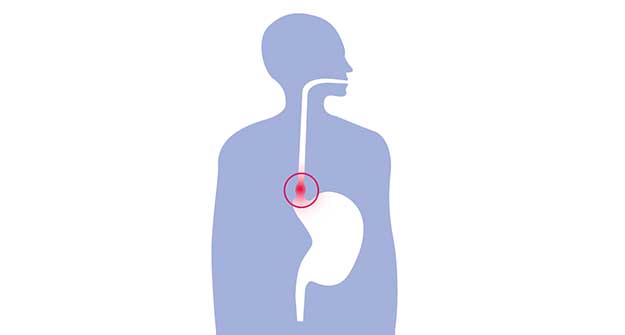
A hiatal hernia is a condition affecting the digestive system.
This type of hernia is characterized by the stomach bulging and poking through the muscle that separates the chest and abdomen. The stomach pushes up into the chest.
Causes
This type of hernia happens when the muscle tissue makes it possible for the stomach to poke through the diaphragm. In some cases, doctors are not able to determine the exact cause. However, the following may contribute:
- Diaphragm changes related to ages
- Unusually large hiatus at birth
- Trauma, surgery or other injuries to the area
- Intense and persistent pressure on the muscles in the areas, such as with vomiting, lifting heavy objects, coughing and bowel movement straining
Certain risk factors might also contribute to a hiatal hernia. These include obesity and being over age 50.
Symptoms
In most cases, until the hernia gets bigger, the patient experiences no symptoms. When they occur, they can include:
- Heartburn
- Acid reflux
- Abdominal or chest pain
- Passing black stools or vomiting blood, both of which may suggest gastrointestinal bleeding
- Liquids or foods regurgitating into the mouth
- Trouble swallowing
- Shortness of breath


Diagnosis
If the patient does not have symptoms, this condition may be discovered during testing for another complaint. When trying to figure out why a patient has upper abdominal or chest pain, or heartburn, the following tests may reveal a hiatal hernia:
- Upper endoscopy: This allows the doctor to inspect the stomach and esophagus.
- X-ray: The patient will first drink a liquid to coat the digestive tract’s inside lining. Then an X-ray is used to visualize the stomach, esophagus, and upper intestine.
- Esophageal manometry: The patient will swallow, and the rhythmic muscle contractions associated with this action are measured.
Treatment
Some patients will not have to receive treatment if they are not experiencing bothersome symptoms. However, if symptoms do occur, there are several possible treatment options.
Medications are often considered first. There are a few different options:
- H-2 receptor blockers: These drugs reduce acid production in the stomach. Examples include cimetidine, ranitidine, and nizatidine.
- Antacids: These medications work to neutralize acid in the stomach. It is important to use them exactly as directed as overuse may cause kidney problems and diarrhea.
- Proton pump inhibitors: If H-2 receptor blockers are not effective, this type of medication might be considered. They block acid production so that the esophagus has time to heal. Examples include omeprazole and lansoprazole.
When medications are not helpful, patients might benefit from surgery. Surgery might also be considered if the patient has narrowing of the esophagus or severe inflammation due to their hiatal hernia.
The surgery involves pulling the stomach into the abdomen. The diaphragm opening is also made smaller to reduce the risk of the stomach pushing through again. In some cases, surgery may also include removing the hernia sac or reconstructing an esophageal sphincter.
When a hiatal hernia is small, it often does not cause issues. However, should symptoms occur, it is important to see a doctor promptly to determine the proper treatment.
